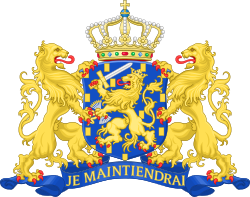Party History
The EB was founded on 15 December 1917 by Willem Treub, [1] a former Minister of Finance. He was a political independent, although he had been member of the progressive liberal Freethinking Democratic League (VDB) until 1913. He was a very successful minister and popular politician, especially in business and middle class circles. He was known as "Minister Forward". He advocated pragmatic politics implemented by strong independent politicians drawn from business. Treub's personalized campaign was supported by successful businessmen. In the 1918 elections the party won only three seats. After the elections the League joined the newly formed neutral parliamentary party, which united several one and two-person parties, namely the Economic League, the Neutral Party, the Peasants' League, the Middle Class Party and the Alliance to Democratise the Forces. The parliamentary party was led by Treub. In parliament, Treub was unable to retain his popularity, in the 1919 municipal elections, the party lost half its votes and won no seats. In the same year Treub, who realized his party had failed, initiated the formation of a liberal party, which would unite all liberal parties. In 1921, the Economic League merged into the Liberal State Party, together with the Liberal Union, League of Free Liberals, Neutral Party and the Middle Class Party. Treub left politics, and the influence of the League on this new party was rather limited.
This page is based on this
Wikipedia article Text is available under the
CC BY-SA 4.0 license; additional terms may apply.
Images, videos and audio are available under their respective licenses.
